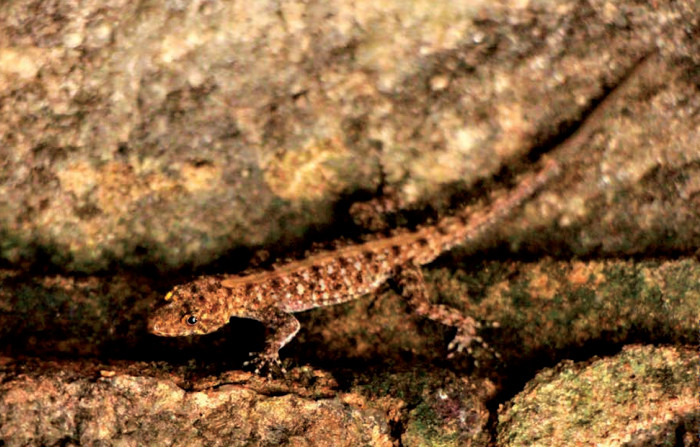Multiple Sensory Modalities in Diurnal Geckos Is Associated with the Signaling Environment and Evolutionary Constraints
Mon, 2020-11-16 19:09
Being conspicuous in the environment allows males to attract mates and warn other males of their presence. Males of a species often use signal traits in different sensory modalities to achieve this. However, as elaboration of several signal-traits is demanding, trade-offs in investment in signal-traits in different modalities is expected, especially since not all traits are equally conspicuous in all environments. In Kabir et al. 2020, we show that signal traits in the chemical and visual modalities in the diurnal gecko, Cnemaspis are well associated with the local environment. We also find interesting trade-offs in elaboration between traits across modalities.
We quantified visual (gular patch size, brightness, and chroma) and chemical (percentage of aromatic and saturated compounds, and number of compounds) traits in five different species of Cnemaspis. We also quantified environmental parameters that are known to affect trait conspicuousness and longevity (visual: brightness and chroma of habitat; chemical: substrate temperature and relative humidity) for all five species. We found some visual and chemical traits showed negative associations, indicating trade-offs within species. We also found that visual and chemical traits were well-associated with the ambient environment. For visual traits, gular patch size was larger, and brightness and chroma of the gular was higher for species in poorly illuminated habitats. For chemical traits, percentage of aromatic and saturated compounds were higher for species found in areas with high substrate temperature and relative humidity. Thus, we found that the elaboration of multimodal signals in Cnemaspis geckos seems to increase the efficiency of communication in the signaling-environment, but the strength of signals in different modalities is constrained by trade-offs in signal expression.
Reference: Kabir, M. S., Venkatesan, R., & Thaker, M. (2020). Multiple sensory modalities in diurnal geckos is associated with the signaling environment and evolutionary constraints. Integrative Organismal Biology, 2(1), 1-14) Link to paper: https://doi.org/10.1093/iob/obaa027
